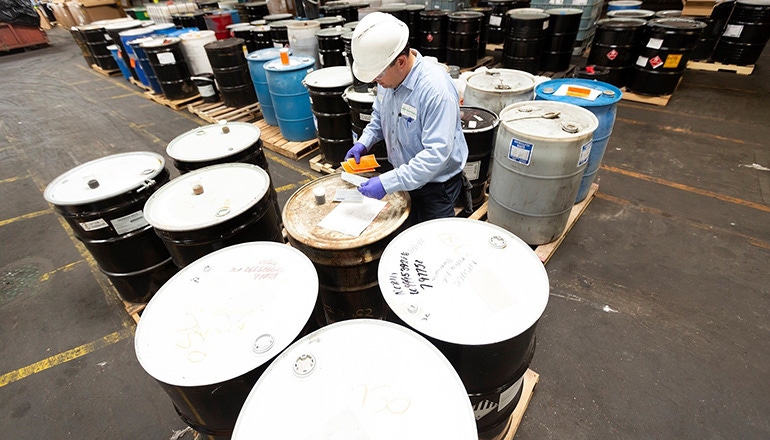Stericycle provides the data, reporting, training and guidance necessary to ensure Petco remains compliant with hazardous waste regulations.

Retailers face scrutiny when managing environmental and waste regulations. Those who generate hazardous waste must remain cognizant of rules like the U.S. Environmental Protection Agency’s (EPA) Resource Conservation and Recovery Act (RCRA), which regulates the disposal of hazardous waste, and Drug Enforcement Administration (DEA) regulations, which regulate the handling and destruction of controlled substances.
The increasing focus on regulations and enforcement can result in fines and violations that are both costly and detrimental to retail brands. Operating 1,550 retail stores across the U.S., Mexico and Puerto Rico, Petco Animal Supplies has encountered challenges with changing regulations and managing the different ways they are enforced across all 50 states for its hazardous waste program.
“[Petco faced] compliance at the store level. With retail being such a tough market with high turnover, keeping up with training is a challenge,” says Amy Ebersole-Martinez, manager of environmental, safety and health for Petco. “Over-classification of materials to make it easier at the store level drives our costs.”
Headquartered in San Diego, the pet specialty retailer partnered with Lake Forest, Ill.-based Stericycle Environmental Solutions to manage its hazardous waste.
“With the need to stay compliant throughout 1,500 stores in 50 states, along with 13 distribution centers located in 10 states, Petco did not have the expertise or the bandwidth to execute proper hazardous waste management internally in a manner that guaranteed compliance,” says Wade Scheel, director of regulatory affairs for Stericycle. “While Petco has worked with hazardous waste management providers in the past, there have been instances in which the retailer felt a general lack of support and were looking for a partner who was more reliable.”
Stericycle, an environmental and regulated waste management services provider, provides the data, reporting, training and guidance necessary to ensure each Petco location remains compliant with hazardous waste regulations.
“Stericycle is our partner for not only hazardous waste but also medical, pharmaceutical/DEA waste. They are also our emergency response team,” says Ebersole-Martinez.
The partnership flourished between the two companies when Stericycle acquired Petco’s former hazardous waste vendor.
“When I started with Petco more than five years ago, there was basically no hazardous waste program. The vendor that was managing what small one we have was not doing it effectively. Fortunately for us, they were purchased by Stericycle and the rest is history,” says Ebersole-Martinez. “It was a bumpy start, but since the relationship has solidified, we have much better compliance at all the stores. With exception reporting along with numerous other reports, we are better able to see what stores are having compliance issues and address those before a regulator inspects.”
Stericycle provides services like assessment and store setup, employee training, waste separation/segregation, regulatory documentation and reporting, safe waste transport and compliant destruction for Petco’s retail locations.
“By partnering with Stericycle, Petco is going beyond meeting the demands of its shoppers,” says Scheel. “It is also operating more efficiently and staying on target for its sustainably goals by remaining compliant. Petco has also expressed satisfaction of having more guidance and support with us compared to other waste management services they have used in the past, especially in terms of regulatory compliance expertise.”
Some of the hazardous waste materials Stericycle manages for Petco include:
Pet shampoo and conditioner
Pet stain remover and other cleaning products
Light bulbs, batteries, etc.
Vitamins and medications (flea/tick/heartworm, etc.)
Aerosols (pet odor air freshener, grooming sprays, perfumes, etc.)
“Overall, Stericycle has been a great partner. They continue to grow and change to make things better. By partnering with retailers and asking for candid feedback, they have made some great changes that continue to aid in the ease of managing a very complicated industry sector,” says Ebersole-Martinez.
Retailers have to go beyond meeting the demands of their consumers, but they also must operate their businesses in ways that protect those consumers and the environment, according to Scheel.
“From ensuring that each location has the proper equipment for waste storage to documenting compliance for various agencies, hazardous waste management is a challenging process that requires data management, reporting and training to remain compliant with ever-changing regulatory rules,” he says. “The consequences of failing to meet these challenges, including aggressive fines and lasting brand damage, are far too real for retailers to ignore.”
About the Author(s)
You May Also Like


